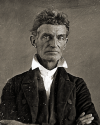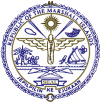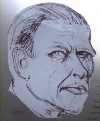 Brown was a radical US abolitionist who advocated armed action to end slavery. He and his supporters murdered five proslavery settlers in Kansas in 1856, and three years later he tried to start an armed liberation movement among slaves by seizing the federal arsenal at Harpers Ferry, West Virginia, intending to arm local slaves with its weapons. His small force was soon overpowered, and Brown was captured, tried for treason, convicted, and hanged. What went wrong during the raid? Discuss
Brown was a radical US abolitionist who advocated armed action to end slavery. He and his supporters murdered five proslavery settlers in Kansas in 1856, and three years later he tried to start an armed liberation movement among slaves by seizing the federal arsenal at Harpers Ferry, West Virginia, intending to arm local slaves with its weapons. His small force was soon overpowered, and Brown was captured, tried for treason, convicted, and hanged. What went wrong during the raid? Discuss
Source: The Free Dictionary
 Brown was a radical US abolitionist who advocated armed action to end slavery. He and his supporters murdered five proslavery settlers in Kansas in 1856, and three years later he tried to start an armed liberation movement among slaves by seizing the federal arsenal at Harpers Ferry, West Virginia, intending to arm local slaves with its weapons. His small force was soon overpowered, and Brown was captured, tried for treason, convicted, and hanged. What went wrong during the raid?
Brown was a radical US abolitionist who advocated armed action to end slavery. He and his supporters murdered five proslavery settlers in Kansas in 1856, and three years later he tried to start an armed liberation movement among slaves by seizing the federal arsenal at Harpers Ferry, West Virginia, intending to arm local slaves with its weapons. His small force was soon overpowered, and Brown was captured, tried for treason, convicted, and hanged. What went wrong during the raid?  Gospel Day in the
Gospel Day in the  A German painter and printmaker, Dix fought in World War I and returned haunted by what he had witnessed. After experimenting with Impressionism and Dada, he arrived at Expressionism and began producing works depicting nightmarish scenes of the horrors of war and the depravities of a decadent society. His antimilitary works aroused the wrath of the Nazi regime and he was dismissed from his academic posts in 1933. On what charges was he arrested in 1939?
A German painter and printmaker, Dix fought in World War I and returned haunted by what he had witnessed. After experimenting with Impressionism and Dada, he arrived at Expressionism and began producing works depicting nightmarish scenes of the horrors of war and the depravities of a decadent society. His antimilitary works aroused the wrath of the Nazi regime and he was dismissed from his academic posts in 1933. On what charges was he arrested in 1939?  The lexical compilations known as dictionaries have taken many forms throughout the ages. The earliest dictionaries were created by the Greeks in the first century CE, while multilingual dictionaries emerged during the Middle Ages. Though today’s lexica contain alphabetized word lists, until the 18th century, English dictionaries were predominantly organized by topic. What were some of the distinctly American words that Noah Webster first documented in his 1828 dictionary?
The lexical compilations known as dictionaries have taken many forms throughout the ages. The earliest dictionaries were created by the Greeks in the first century CE, while multilingual dictionaries emerged during the Middle Ages. Though today’s lexica contain alphabetized word lists, until the 18th century, English dictionaries were predominantly organized by topic. What were some of the distinctly American words that Noah Webster first documented in his 1828 dictionary?  Following the death of Henry, the cardinal-king of Portugal, in 1580, Philip II of Spain assumed control of Portugal by force of arms. The “Spanish captivity” lasted for 60 years. Finally, in 1640, the Portuguese took advantage of Philip IV’s preoccupation with a rebellion in Catalonia and revolted. The Portuguese dethroned him and reclaimed independence for Portugal. Undeterred, Philip fought for decades to regain control of Portugal. When did Spain finally recognize Portugal’s independence?
Following the death of Henry, the cardinal-king of Portugal, in 1580, Philip II of Spain assumed control of Portugal by force of arms. The “Spanish captivity” lasted for 60 years. Finally, in 1640, the Portuguese took advantage of Philip IV’s preoccupation with a rebellion in Catalonia and revolted. The Portuguese dethroned him and reclaimed independence for Portugal. Undeterred, Philip fought for decades to regain control of Portugal. When did Spain finally recognize Portugal’s independence?  This public holiday commemorates the restoration of Portugal’s independence from Spain on December 1, 1640.
This public holiday commemorates the restoration of Portugal’s independence from Spain on December 1, 1640.